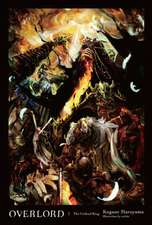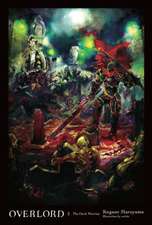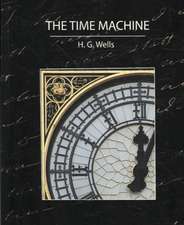The War in the Air
Autor H. G. Wellsen Limba Engleză Paperback
Preț: 57.07 lei
Nou
Puncte Express: 86
Preț estimativ în valută:
10.93€ • 11.40$ • 9.16£
10.93€ • 11.40$ • 9.16£
Carte disponibilă
Livrare economică 19 februarie-05 martie
Preluare comenzi: 021 569.72.76
Specificații
ISBN-13: 9781512173161
ISBN-10: 1512173169
Pagini: 152
Dimensiuni: 152 x 229 x 8 mm
Greutate: 0.21 kg
Editura: CreateSpace Independent Publishing Platform
ISBN-10: 1512173169
Pagini: 152
Dimensiuni: 152 x 229 x 8 mm
Greutate: 0.21 kg
Editura: CreateSpace Independent Publishing Platform
Notă biografică
Herbert George Wells (21 September 1866 - 13 August 1946) was an English writer. He was prolific in many genres, writing dozens of novels, short stories, and works of social commentary, satire, biography, and autobiography, and even including two books on recreational war games. He is now best remembered for his science fiction novels and is often called a "father of science fiction", along with Jules Verne and Hugo Gernsback.[5][6][a]
During his own lifetime, however, he was most prominent as a forward-looking, even prophetic social critic who devoted his literary talents to the development of a progressive vision on a global scale. A futurist, he wrote a number of utopian works and foresaw the advent of aircraft, tanks, space travel, nuclear weapons, satellite television and something resembling the World Wide Web.[7] His science fiction imagined time travel, alien invasion, invisibility, and biological engineering. Brian Aldiss referred to Wells as the "Shakespeare of science fiction".[8] Wells rendered his works convincing by instilling commonplace detail alongside a single extraordinary assumption - dubbed "Wells's law" - leading Joseph Conrad to hail him in 1898 as "O Realist of the Fantastic!".[9] His most notable science fiction works include The Time Machine (1895), The Island of Doctor Moreau (1896), The Invisible Man (1897), The War of the Worlds (1898) and the military science fiction The War in the Air (1907). Wells was nominated for the Nobel Prize in Literature four times.[10]
Wells's earliest specialised training was in biology, and his thinking on ethical matters took place in a specifically and fundamentally Darwinian context.[11] He was also from an early date an outspoken socialist, often (but not always, as at the beginning of the First World War) sympathising with pacifist views. His later works became increasingly political and didactic, and he wrote little science fiction, while he sometimes indicated on official documents that his profession was that of journalist.[12] Novels such as Kipps and The History of Mr Polly, which describe lower-middle-class life, led to the suggestion that he was a worthy successor to Charles Dickens,[13]but Wells described a range of social strata and even attempted, in Tono-Bungay (1909), a diagnosis of English society as a whole. A diabetic, Wells co-founded the charity The Diabetic Association (known today as Diabetes UK) in 1934
Herbert George Wells was born at Atlas House, 162 High Street in Bromley, Kent,[15] on 21 September 1866.[4] Called "Bertie" in the family, he was the fourth and last child of Joseph Wells (a former domestic gardener, and at the time a shopkeeper and professional cricketer) and his wife, Sarah Neal (a former domestic servant). An inheritance had allowed the family to acquire a shop in which they sold china and sporting goods, although it failed to prosper: the stock was old and worn out, and the location was poor. Joseph Wells managed to earn a meagre income, but little of it came from the shop and he received an unsteady amount of money from playing professional cricket for the Kent county team.[16] Payment for skilled bowlers and batsmen came from voluntary donations afterwards, or from small payments from the clubs where matches were played.
Descriere
Descriere de la o altă ediție sau format:
Following the development of massive airships, naive Londoner Bert Smallways becomes accidentally involved in a German plot to invade America by air and reduce New York to rubble.
Following the development of massive airships, naive Londoner Bert Smallways becomes accidentally involved in a German plot to invade America by air and reduce New York to rubble.






















